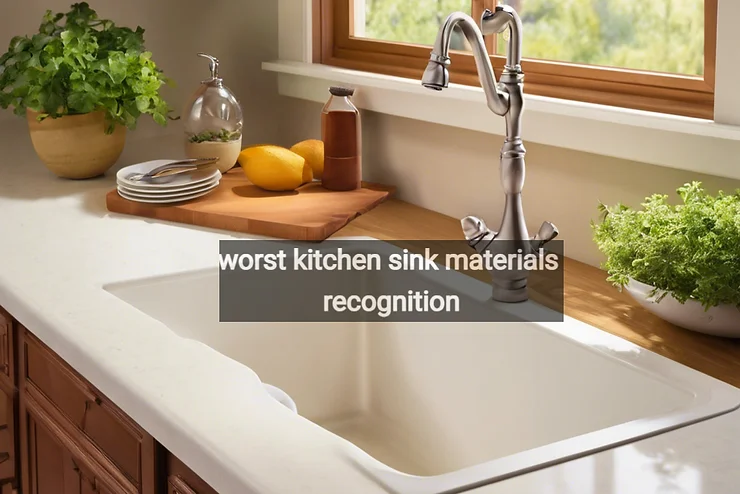Choosing the right kitchen sink material is very important when designing or renovating the kitchen or bathroom sink because the sink has the same functions. Many kitchen sink materials are sturdy and beautiful, but some can cause trouble that’s why you have to check their quality factors. Kitchen sink materials quality can be measured statically but you can feel and see the quality of material through touching the materials. The worst is based on the cheap making materials including porcelain enamel over steel, and acrylic…
In this article, we have discussed some factors on which the kitchen sink’s material quality depends.
Sink material quality recognition tips:
The sink quality depends on its weight, surface inspection, water resistance, and rust potential. By checking the quality of materials, you can buy good quality kitchen sink materials.
1. Porcelain enamel over steel
Porcelain enamel sinks can chip easily, especially if heavy pots and pans are dropped into them. Once the enamel chips, the exposed steel underneath can rust, leading to unsightly stains and a sink that deteriorates over time. Additionally, it tends to show water spots and stains, which makes it ugly and difficult to keep clean.
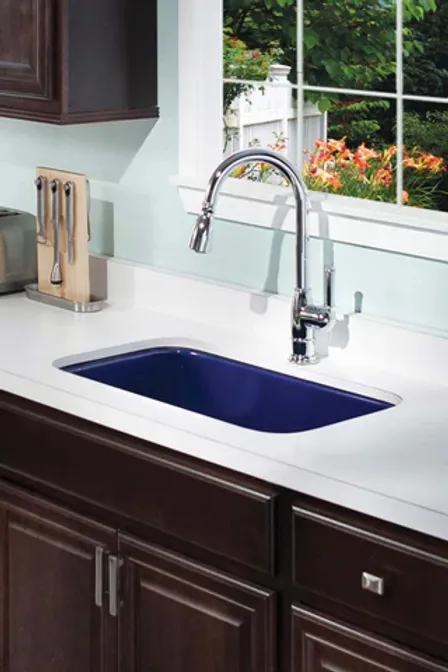
Recognition tips:
- Resistant to stains and scratches
- Lightly tap the sink. If it sounds hollow, it may be porcelain enamel over steel.
Much better than that:
- A porcelain sink coating with a cast iron base is much more durable than steel, reducing the risk of rust and extending the sink’s lifespan.
- Stainless steel sinks are resistant to chipping and rusting, making them a better choice.
2. Acrylic
Acrylic sinks are made from plastic and are lightweight. While they are inexpensive and come in various colors, they are prone to scratching and staining. Hot pots and pans can even melt the surface, leading to permanent damage. Over time, they can also lose their shine and become dull.
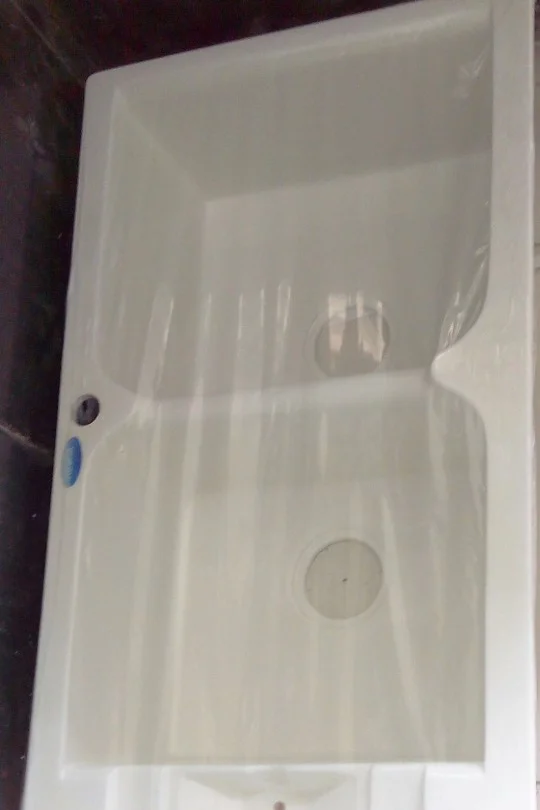
Recognition tips:
- A lightweight sink that feels like plastic.
- A wide range of bright colors.
Better alternative:
- Granite composite material is much more resistant to scratches and heat, maintaining its appearance over time.
- Quartz composite and resin are durable, heat-resistant, and less prone to scratching than acrylic.
3. Copper
Copper sinks are aesthetically pleasing and naturally antimicrobial; they require a lot of maintenance to keep their shine. Copper is a soft metal that can easily dent and scratch. Furthermore, it tends to develop a patina over time, which can be undesirable if you prefer a consistent look.
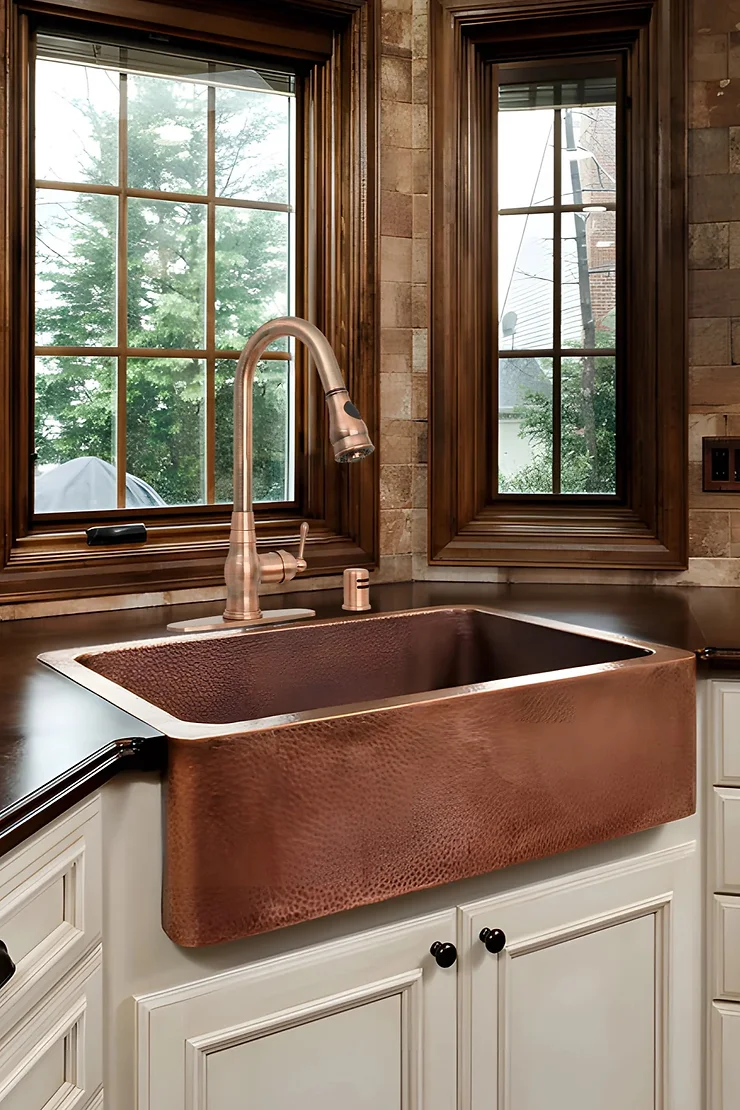
Recognition tips:
- A warm, reddish-brown hue.
- Copper naturally resists bacteria, making it hygienic.
Better Alternative:
- Provides a sleek look without high maintenance.
- Offers a similar aesthetic appeal with higher durability and lower maintenance.
4. Cast Iron without enamel coating
Cast iron sinks without an enamel coating are incredibly heavy and prone to rust if the surface is damaged. Rust can lead to structural integrity issues in sinks and an unsightly appearance. These sinks also require regular maintenance to prevent corrosion.
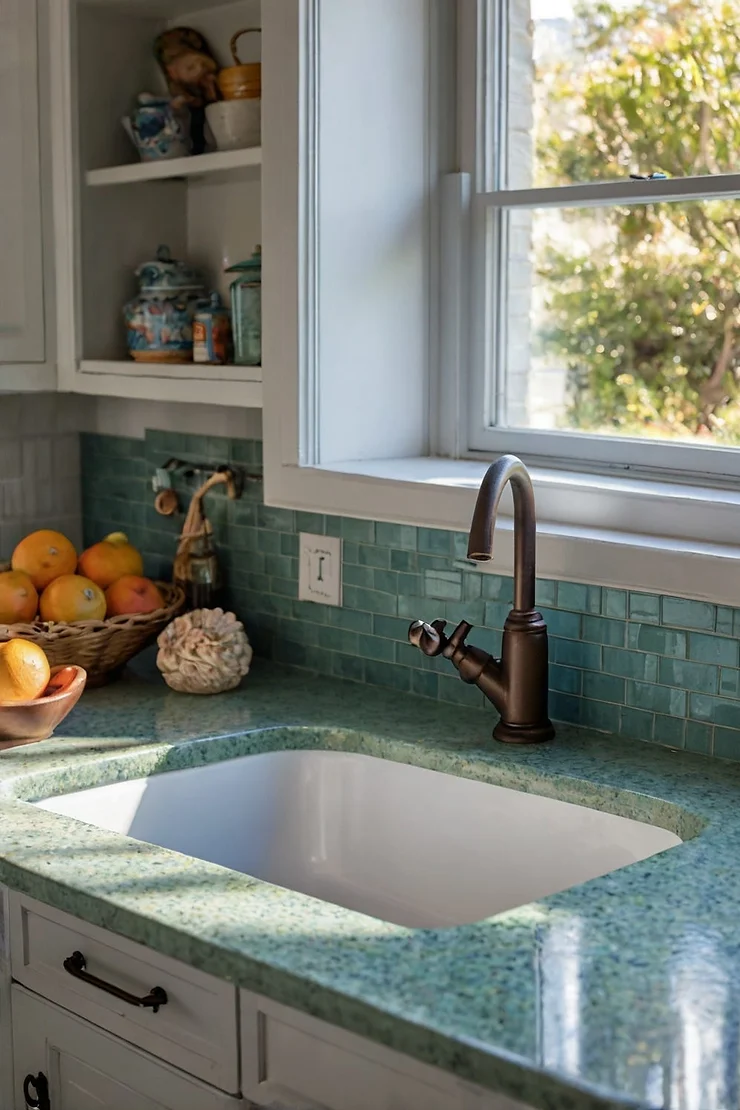
Recognition tips:
- It will be extremely heavy.
- It will also be rough and dull without the smoothness of enamel.
Better than that:
- Cast iron with enamel coating protects against rust and an easy-to-clean surface.
- Stainless steel is lightweight, durable, and resistant to rust.
5. Natural stone
Natural stone (marble or granite) sinks are stunning, they are highly porous and require frequent sealing to prevent stains. Acidic substances (lemon juice) also lead to dull spots. They are prone to chipping and cracking, which are costly to repair.
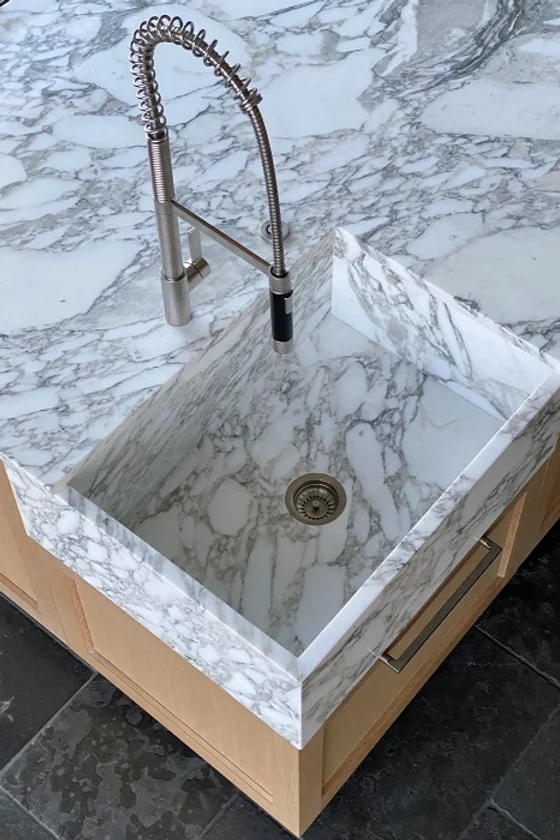
Recognition tips:
- A natural, varied pattern in the stone.
- It will be cold and have a hard surface to the touch.
Better alternative:
- Granite composite is made of natural stone with greater durability and resistance to stains and etching.
- Quartz composite is also durable and less prone to damage than natural stone, with the added benefit of being non-porous.
Conclusion:
When choosing a kitchen sink, it’s important to consider the appearance and the material’s durability, maintenance, and functionality. So, a long-lasting with a standard height of kitchen sink materials also depends on your pocket. Because when you customize the sink with your desires it automatically increases the price of the materials. Avoiding the worst materials saves you time, money, and frustration in the long run.

